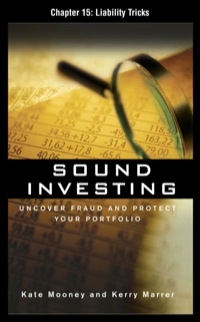Answered step by step
Verified Expert Solution
Question
1 Approved Answer
Ethics Facts: A privately held Chicago area defense subcontractor (XYZ) manufactures parts used in the defense industry. You are employed by a CPA firm and
Ethics
Facts:
- A privately held Chicago area defense subcontractor (XYZ) manufactures parts used in the defense industry.
- You are employed by a CPA firm and are assigned to do an annual compilation and corporate income tax returns for the year ended December 31, 20X1. This is an initial engagement for your firm. The firm acquired this client because the Partner on this engagement had prepared the XYZ controllers (Thomas) personal tax return.
- Briefly, CPA firms often are hired to provide this very low level of assurance service for small companies.
- Historically, the Company has about $6 million in annual sales. Profits are down because of reductions in Defense spending by the US Government.
- The Controller furnishes you with a set of workpapers supporting all balance sheet accounts.
- XYZ has significant bank debt of 2 kinds: debt related to the building XYZ recently constructed to house its operations and an asset-based lending arrangement (ABL). Under an ABL, the level of maximum indebtedness fluctuates based upon the borrowers eligible collateral generally inventory and receivables.
- At the 12/31/20X1 year-end, inventory is $542,365. The only support the Controller furnishes is a handwritten sheet of paper with this number written on it. The Controller tells you that the underlying computer runs are not correct since there are various software errors which need to be fixed; the number on the schedule & trial balance is the most reliable.
- The year-end trial balance reflects an account customer deposits of $226,012; the supporting workpaper lists 4 customer deposits totaling this year-end balance.
- You conclude the year-end engagement in 3 days on budget 1 day for the fieldwork, 1 day to prepare the compilation financial statements with footnotes back in the office and 1 day to prepare the corporate income tax returns in the office.
- At the mid-year 6/30/20X2 compilation, the workpapers you receive are similar; the inventory balance is comparable to 12/31/20X1 & the customer deposit account remains unchanged. When you ask Jim why is the customer deposit account unchanged, he tells you they are really not customer deposits; they are deposits received from former customers that went bankrupt. The trustees in bankruptcy never requested refunds from XYZ.
- At the next year-end 12/31/20X2, the adjusted trial balance reflects approximately a break-even situation. For inventory, you receive a similar hand written schedule with 1 number written down (same explanation from Jim). The 12/31/20X2 inventory balance is comparable to the inventory balance at both 12/31/20X1 and 6/30/20X2. The analysis of customer deposits reflects only 3 names totaling $142,987. Jim informs you that we were sure no one would ever request a refund because the bankruptcy case was closed therefore we took the deposit of $93,025 into income (calculated as $206,012 - $142,987).
Required:
- What do you believe your Accounting Firm should do about the Companys inventory? Be specific. For your information, the Company is not interested in hiring your Firm to improve their inventory costing system.
- Do you agree with the Companys handling of the customer deposits account? Why or why not? Be specific.
- Do you believe XYZ has committed Fraud? If yes, in what financial statement area or areas did XYZ commit Fraud? Be specific and explain why.
- Evaluate this client from a fraud risk standpoint. Do you think this is a good client to have? Why or why not? Be specific.
Step by Step Solution
There are 3 Steps involved in it
Step: 1

Get Instant Access to Expert-Tailored Solutions
See step-by-step solutions with expert insights and AI powered tools for academic success
Step: 2

Step: 3

Ace Your Homework with AI
Get the answers you need in no time with our AI-driven, step-by-step assistance
Get Started


